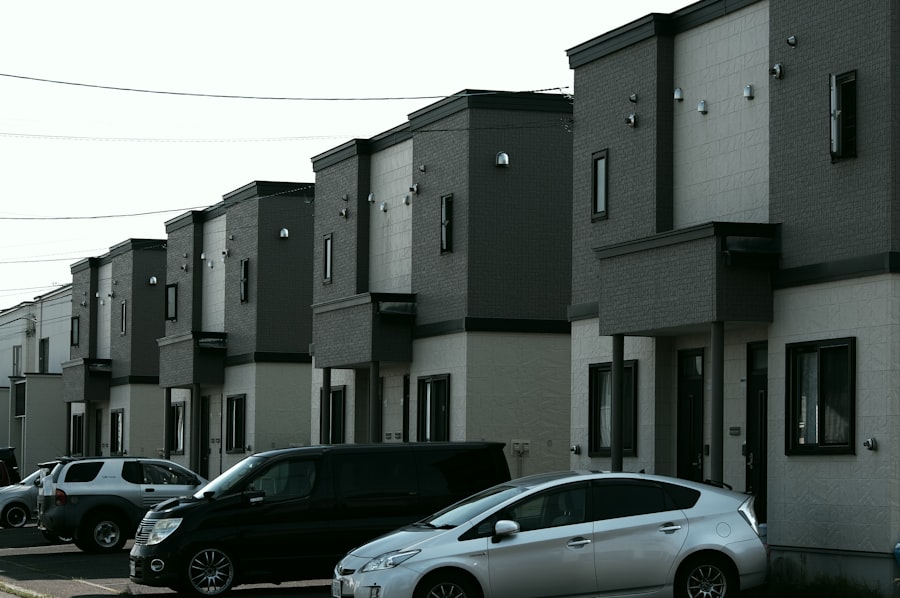Modular homes are a unique category of residential construction that combines the efficiency of factory-built components with the flexibility of traditional site-built homes. Unlike conventional homes that are constructed entirely on-site, modular homes are prefabricated in sections, or “modules,” in a controlled factory environment. These modules are then transported to the building site, where they are assembled on a permanent foundation.
This method of construction allows for a high degree of precision and quality control, as the modules are built under strict regulations and standards. The design possibilities for modular homes are extensive. They can range from simple, single-story structures to complex multi-story designs, accommodating various architectural styles and personal preferences.
The modular construction process also allows for quicker build times compared to traditional methods, often reducing the overall time from conception to completion. This efficiency is particularly appealing to homebuyers looking for a streamlined approach to homeownership without sacrificing quality or aesthetics.
Key Takeaways
- Modular homes are built in sections in a factory and then transported to the building site for assembly.
- Choosing a modular home can offer benefits such as cost savings, faster construction time, and energy efficiency.
- Finding modular homes near you can be done through online searches, local real estate agents, or modular home builders.
- Factors to consider when choosing a modular home include location, size, design options, and customization possibilities.
- The process of buying a modular home involves selecting a floor plan, customizing the home, obtaining permits, and coordinating delivery and installation.
Benefits of Choosing a Modular Home
One of the most significant advantages of modular homes is their cost-effectiveness. Because they are built in a factory setting, manufacturers can take advantage of economies of scale, which often translates to lower prices for consumers. Additionally, the reduced construction time means that buyers can move into their new homes sooner, minimizing the costs associated with prolonged housing situations, such as renting or temporary accommodations.
Energy efficiency is another compelling benefit of modular homes. Many manufacturers incorporate sustainable building practices and materials into their designs, resulting in homes that are not only environmentally friendly but also cost-effective in terms of energy consumption. Features such as high-quality insulation, energy-efficient windows, and advanced heating and cooling systems contribute to lower utility bills over time.
This focus on sustainability aligns with the growing consumer demand for eco-friendly living solutions.
Finding Modular Homes Near Me

When searching for modular homes in your area, it is essential to utilize a variety of resources to ensure you find the best options available. Online platforms dedicated to real estate listings often feature modular homes alongside traditional properties. Websites like Zillow, Realtor.com, and specialized modular home directories can provide comprehensive listings that include photos, specifications, and pricing information.
Local real estate agents can also be invaluable in your search for modular homes. Many agents have experience with specific types of properties and can guide you through the nuances of purchasing a modular home. They may have access to exclusive listings or knowledge about upcoming developments that are not yet publicly advertised.
Additionally, visiting local modular home manufacturers or showrooms can provide firsthand insight into available models and customization options.
Factors to Consider When Choosing a Modular Home
| Factors to Consider | Description |
|---|---|
| Location | Consider the location where you want to place your modular home, including zoning regulations and land availability. |
| Customization Options | Check the customization options offered by the modular home company to ensure it meets your needs and preferences. |
| Quality of Materials | Assess the quality of materials used in the construction of the modular home to ensure durability and longevity. |
| Builder’s Reputation | Research the reputation and experience of the modular home builder to ensure reliability and quality construction. |
| Energy Efficiency | Consider the energy efficiency features of the modular home to reduce utility costs and environmental impact. |
| Cost and Budget | Evaluate the overall cost of the modular home, including customization and additional expenses, to fit your budget. |
Selecting the right modular home involves careful consideration of several factors that can significantly impact your living experience. One critical aspect is the size and layout of the home. Modular homes come in various sizes, from compact models suitable for small families or individuals to expansive designs that accommodate larger households.
It is essential to assess your current and future needs when determining the appropriate square footage and number of bedrooms and bathrooms. Another important factor is the location of your modular home. The site you choose will influence not only your daily life but also the long-term value of your investment.
Consider proximity to schools, workplaces, healthcare facilities, and recreational areas when evaluating potential locations. Additionally, zoning regulations and land use restrictions may affect where you can place your modular home, so it is crucial to research local ordinances before making a decision.
The Process of Buying a Modular Home
The process of purchasing a modular home typically begins with selecting a manufacturer or builder that aligns with your vision and budget. Researching various companies is essential; look for those with a solid reputation for quality construction and customer service. Once you have identified potential builders, you can explore their available models and customization options.
After selecting a model, the next step involves securing financing for your purchase. Many buyers opt for traditional mortgages, but it is essential to understand that financing a modular home may differ slightly from financing a conventional home due to its unique construction process. Once financing is secured, you will work with the builder to finalize design choices, including layout modifications and material selections.
Following this phase, the builder will begin constructing your home in their factory while you prepare the site for installation.
Financing Options for Modular Homes

Financing a modular home can be approached similarly to financing a traditional home, but there are some nuances to consider. Many lenders offer loans specifically designed for modular homes, which may include options such as conventional mortgages, FHA loans, or VA loans for eligible veterans. It is crucial to work with lenders who have experience in modular home financing, as they will be familiar with the specific requirements and processes involved.
One common financing option is a construction-to-permanent loan, which allows buyers to finance both the construction phase and the permanent mortgage in one loan package. This type of loan typically covers the cost of land acquisition, site preparation, and the construction of the modular home itself. Once construction is complete, the loan converts into a standard mortgage with fixed or adjustable rates based on current market conditions.
Customizing Your Modular Home
One of the most appealing aspects of modular homes is the ability to customize them according to personal preferences and lifestyle needs. Most manufacturers offer a range of design options that allow buyers to tailor their homes from floor plans to finishes. This customization can include selecting specific layouts that optimize space usage or choosing materials that reflect individual tastes.
Beyond aesthetic choices, buyers can also incorporate energy-efficient features into their designs. For instance, opting for solar panels or high-efficiency appliances can significantly reduce energy consumption over time. Additionally, many manufacturers provide options for smart home technology integration, allowing homeowners to control lighting, heating, and security systems remotely through mobile devices.
Maintenance and Upkeep of Modular Homes
Maintaining a modular home involves many of the same responsibilities as maintaining any other type of residence. Regular inspections and upkeep are essential to ensure that all systems function correctly and that the home’s exterior remains in good condition. This includes routine tasks such as cleaning gutters, checking for signs of wear on roofing materials, and ensuring that windows and doors seal properly.
One area where modular homes may require special attention is their foundation and anchoring systems. Since these homes are transported in sections and assembled on-site, it is crucial to monitor the integrity of the foundation over time. Homeowners should be vigilant about any signs of settling or shifting and address these issues promptly to prevent more significant problems down the line.
Regular maintenance not only preserves the home’s value but also enhances its longevity and livability for years to come.

